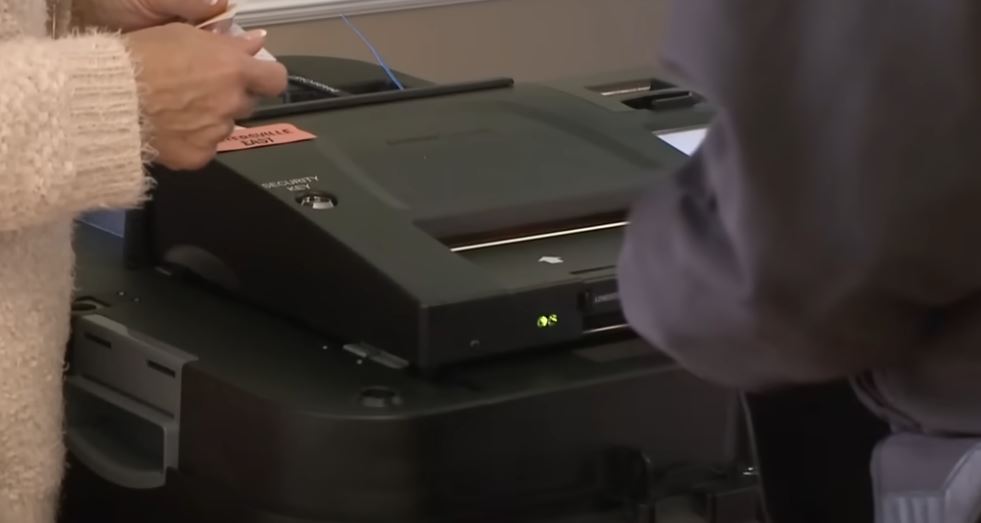In recent weeks, reports have emerged from various states, particularly Georgia, Tennessee, and Texas, regarding issues with voting machines that are alleged to manipulate voter selections in alarming ways reminiscent of the controversies surrounding the 2020 elections. In Georgia’s Whitfield County, Representative Marjorie Taylor Greene highlighted a case where a voter’s selection on a Dominion voting machine did not match the printed ballot, claiming that the machine flipped their Republican choice to a Democrat. Greene took to social media to urge constituents to double-check their printed ballots, reflecting concerns about election integrity and suggesting that these issues could lead to voter fraud, echoing the allegations made during the 2020 election cycle.
Greene’s statements have drawn attention to a broader trend of reported voting irregularities, igniting debates about the reliability of electronic voting systems. The specific case in Whitfield County was addressed by the local Board of Elections, which assured voters that the problem had been resolved; however, Greene’s call to action indicates a significant hesitation about the current electoral technology. Notably, her insistence on verifying ballots reflects a pervasive fear among some voters about the integrity of elections, particularly in regions where Republican candidates face staunch opposition.
Meanwhile, in Shelby County, Tennessee, election officials have encountered similar complaints regarding voting machines changing selections. Local authorities responded to these accusations, suggesting that the issues stem from user error rather than a malfunction of the machines themselves. Election Commissioner Venecia Kimbrow explained that the new machines come with a learning curve, and she reassured voters that they had been thoroughly tested for functionality. According to Kimbrow, mistakes made by voters during the selection process could lead to experiences of seemingly flipped votes, further complicating public trust in digital voting systems.
Critics of the voting machines, however, assert that attributing the issues solely to user error detracts from the potential technical flaws within the systems themselves. Commentators like George Behizy emphasized that the continued use of these machines, especially by Republican voters, raises significant concerns about democratic processes and the broader implications for election fairness. Such critiques point toward a growing skepticism surrounding electronic voting technologies, reflecting a desire among some to revert to more traditional and transparent voting methods.
In Dallas County, Texas, similar reports of voting machine malfunctions surfaced, as County GOP Chair Allen West expressed his dissatisfaction with the machines’ performance. West claimed that the voting machines had failed to meet their mandated logic and accuracy tests prior to the election, which amplified fears of electoral disruption in a different but equally critical battleground for GOP candidates. This pattern of reported issues across states underscores a widespread anxiety regarding the operational integrity of voting technology as key elections approach.
The convergence of these incidents from Georgia to Tennessee and Texas creates a compelling narrative about the potential vulnerabilities of electronic voting systems and their ability to uphold democratic principles. As fears about the reliability of voting technology continue to circulate, the calls for reassessments and thorough investigations into the electoral process may grow louder. The ongoing dialogues among politicians and concerned voters hint at a significant reckoning with the systems in place, as they seek to ensure that all votes cast reflect the true will of the electorate and maintain overall confidence in democratic practices.

